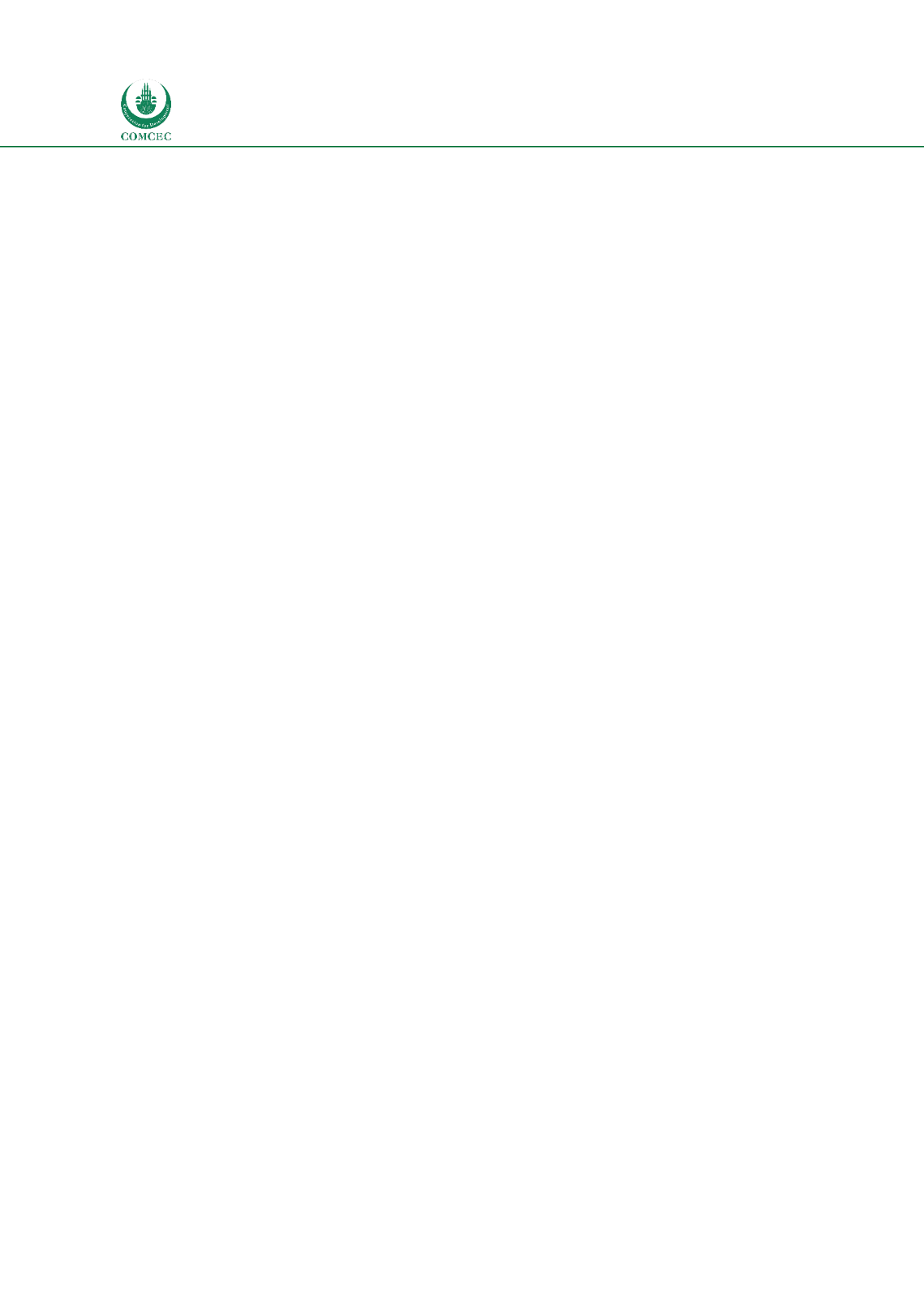

National and Global Islamic Financial Architecture:
Problems and Possible Solutions for the OIC Member Countries
76
crises in the country. The act will legally support the functions of the Financial Stability
Coordination Forum (FKSSK) to maintain financial system stability in the country.
4.3.3. Sharia Governance Framework
Indonesia has an independent central Sharia regulatory authority called the National Sharia
Board (DSN) that deals with, among others, issuing verdicts (fatwa) related to Islamic
economics and business. DSN, a subsidiary of the National Ulama Council (MUI), was
established in 1999 with issuance of the MUI Decree Number Kep-754/MUI/II/1999 (DSN,
2015). Some unique features of the DSN include that (i) it is not under the purview of Ministry
of Finance or the Central Bank, (ii) it consists of representative members from all Islamic
organizations (mainly Muhammadiyah and Nadhatul Ulama), (iii) the Sharia decisions are
decided based on a consensus of all representative scholars of DSN, and (iv) the DSN's
operational budget does not come from financial industries or market players.
DSN has issued close to 100 verdicts covering the banking sector, capital markets, money
markets and nonbanking sector as well as social sectors. Being an independent body, DSN
verdicts are considered conservative as it has not allowed the implementation of certain
Islamic financial contracts such as
bay al innah, tawarruq, bay al dayn, bay al wafa
, etc. The
governance of Sharia approval follows certain set procedures. Before submission of a new
product/instrument to the regulators for approval, the Sharia Supervisory Board (SSB) of
financial institutions should get it cleared by the DSN. If the DSN approves the product then it
is forwarded to the regulators (OJK and BI) who examine the product/instrument proposal
from the economic and financial systems' points of view.
Along with the DSN activities and decisions, Article 32 of the Islamic Banking Act 2008
mandates Islamic financial institutions to have SSB deal with Sharia issues in banking
operations.
4.3.4. Liquidity Infrastructure
Various liquidity management instruments can be used by the Islamic financial sector in
Indonesia. First, the central bank serves the market with Islamic liquid instruments to solve
liquidity problems. These instruments include Bank Indonesia Islamic Certificate (SBIS) and
Bank Indonesia Islamic Funding Facilities (FASBIS), repurchase (repo) of SBIS to Bank
Indonesia, Repo of the Government
Sukuk
(SBSN) to Bank Indonesia, reverse repo of the SBSN
to Bank Indonesia and Islamic Foreign Exchange Deposit in Bank Indonesia (Term Deposit
Valas). In case urgent liquidity is needed, there are the Islamic Intraday Emergency Liquidity
Facility (FLIS) (Bank Indonesia, 2005) and Islamic Short Term Financing Facility (FPJPS) (Bank
Indonesia, 2008b) as the lender of the last resort (LOLR) instruments with Islamic schemes
(Bank Indonesia, 2015b)
While the market players (Islamic banks or conventional banks) mainly use Interbank
Mudarabah
Investment Certificate (SIMA) in the Islamic money market (PUAS), their
transactions are small as most of the Islamic banks’ liquidity extends to finance the real sector
(Bank Indonesia, 2015). The funds placed in PUAS are purely for dealing with short term
liquidity needs. The Islamic money market instruments include SIMA (Bank Indonesia, 2007),
Interbank Islamic Commodity Trading Certificate (SIKA), and Islamic repurchase (Repo) (Bank
Indonesia, 2012). In addition to the Islamic money markets, market players can also invest in
















